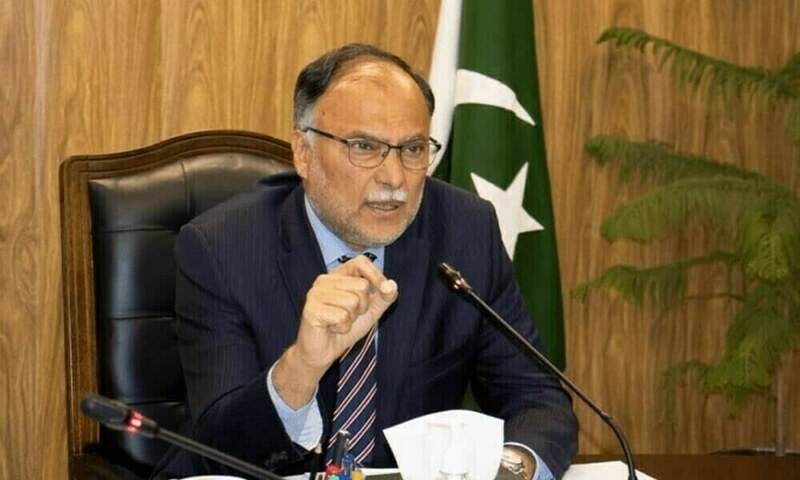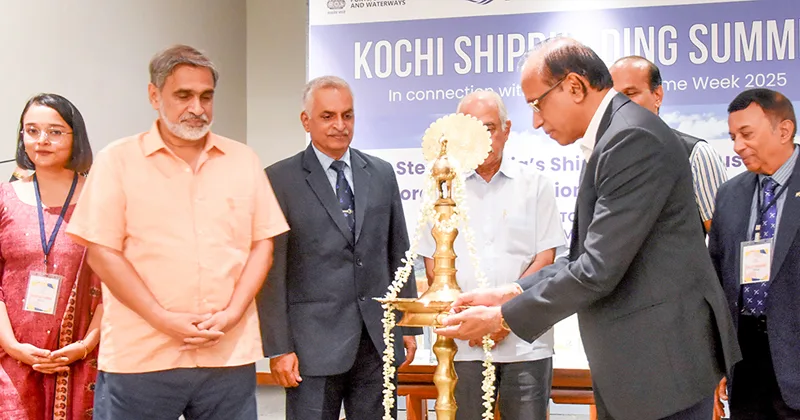Copyright brecorder

LAHORE: Federal Minister for Planning, Development and Special Initiatives Professor Ahsan Iqbal on Thursday said that the new generation is challenging the traditional model of democracy, and the existing civil service system is unable to cope with the issues of the modern era. He said that through a Smart Civil Service Model and the use of technology, a better system of governance will be introduced in Pakistan. He was addressing the inaugural session of the three-day international conference on “Local Realities and Regional Futures Transforming Public Administration and Management in South Asia” organized by the Punjab University Institute of Administrative Sciences in collaboration with the South Asian Network for Public Administration (SANPA) at the Riazuddin Auditorium, Centre of Excellence in Molecular Biology (CEMB). Special Assistant to the Chief Advisor of Bangladesh and Emeritus Professor at Western Sydney University, Australia, Prof Dr Anisuzzaman Chowdhury, Bangladeshi High Commissioner in Pakistan Iqbal Hussain Khan, PU VC Prof Dr Muhammad Ali, Director IAS Prof Dr Kashif Rathore, SANPA representative Prof Dr Ikhlaq Haq, Conference Co-Chair Prof Dr Yamina Salman, faculty members, researchers, and a large number of students were present. In his address, Ahsan Iqbal said that governance in today’s world is both complex and decisive. However, the time has come to introduce a system that not only maintains order but also promotes development and transformation. He said that modern governance requires agility, innovation, collaboration, and results-oriented frameworks rather than rigid structures. He stated that the new generation, being witnesses to the digital smart phone world, is challenging the traditional model of democracy. In the past, citizens would cast their votes and wait for the next elections, but now voters remain active and demand accountability. He said that vice chancellors are the “core commanders” of the educational revolution, and universities need to redefine their roles to lead the knowledge revolution. He added that a seven-point framework has been developed to enhance the performance of universities. He emphasized that universities should play a vital role in serving industry, academia, and society. Highlighting the ongoing reform initiatives of the Government of Pakistan, he elaborated on the Smart Civil Service Model, aimed at transforming Pakistan’s bureaucracy into a high-performing institution. He said that recruitment and training will be linked to professional expertise, while promotions will depend on performance, leadership qualities, and learning capacity. Governance, he said, will shift from rule-compliance to result-delivery. Representation from all provinces, languages, and social classes will be ensured. He added that digital technology will play a central role in ensuring transparency and efficiency. He emphasized that the era of generalist skills is over; Pakistan now needs a civil service that rewards performance, embraces innovation, and considers public service its core duty. Quoting holy Quran verses, Hadith, and the governance practices of the Caliphs, he said that Islam places great emphasis on justice, equity, accountability, and public service values that form the foundation of modern administrative ethics. The Federal Minister said that under the leadership of Prime Minister Muhammad Shehbaz Sharif, the government has seriously reinitiated the process of civil service reforms. He urged PU’s administration to establish public policy labs, where students, researchers, and policymakers can collaborate to find solutions to real-world problems. He also proposed establishing a South Asian Governance Innovation Network to enable regional countries to share reform experiences and research outcomes. He said that the state of the future should not be a remnant of colonial legacy but an engine of national development. He said Pakistan must become a “smart nation” through smart governance to achieve the goal of a one-trillion-dollar economy by 2035 and a three-trillion-dollar economy by 2047. He added that institutions cannot change overnight, but delaying reforms is equivalent to rejecting reforms. “We owe it to our youth, taxpayers, and the future of our country,” he said “to build a governance system aligned with the demands of a changing world.” Dr Anees-uz-Zaman Chaudhry gave a detailed presentation, emphasizing that solutions to local problems must be rooted in local realities. He said that instead of relying on governments, we have come to trust multinational corporations. He urged citizens to play their role in making governments accountable. He observed that the race for lucrative positions has distorted the governance model. Citing divine guidance, he said Allah has commanded justice and equality in all affairs. He added that improving the tax-to-GDP ratio is essential, as weaknesses in the tax system force Pakistan to seek IMF support. He said that while the nation once united to overthrow dictatorial rule, even that unity now faces challenges. He emphasized the need to understand the message of the Holy Qur’an, which discourages extremism and promotes moderation. He said that the era of nationalism is emerging globally, and the power of the people is rising worldwide. He noted that in Sri Lanka, Bangladesh, and Nepal, youth movements have transformed entire systems by standing up to entrenched power. Islam, he said, teaches justice and equality. Copyright Business Recorder, 2025



